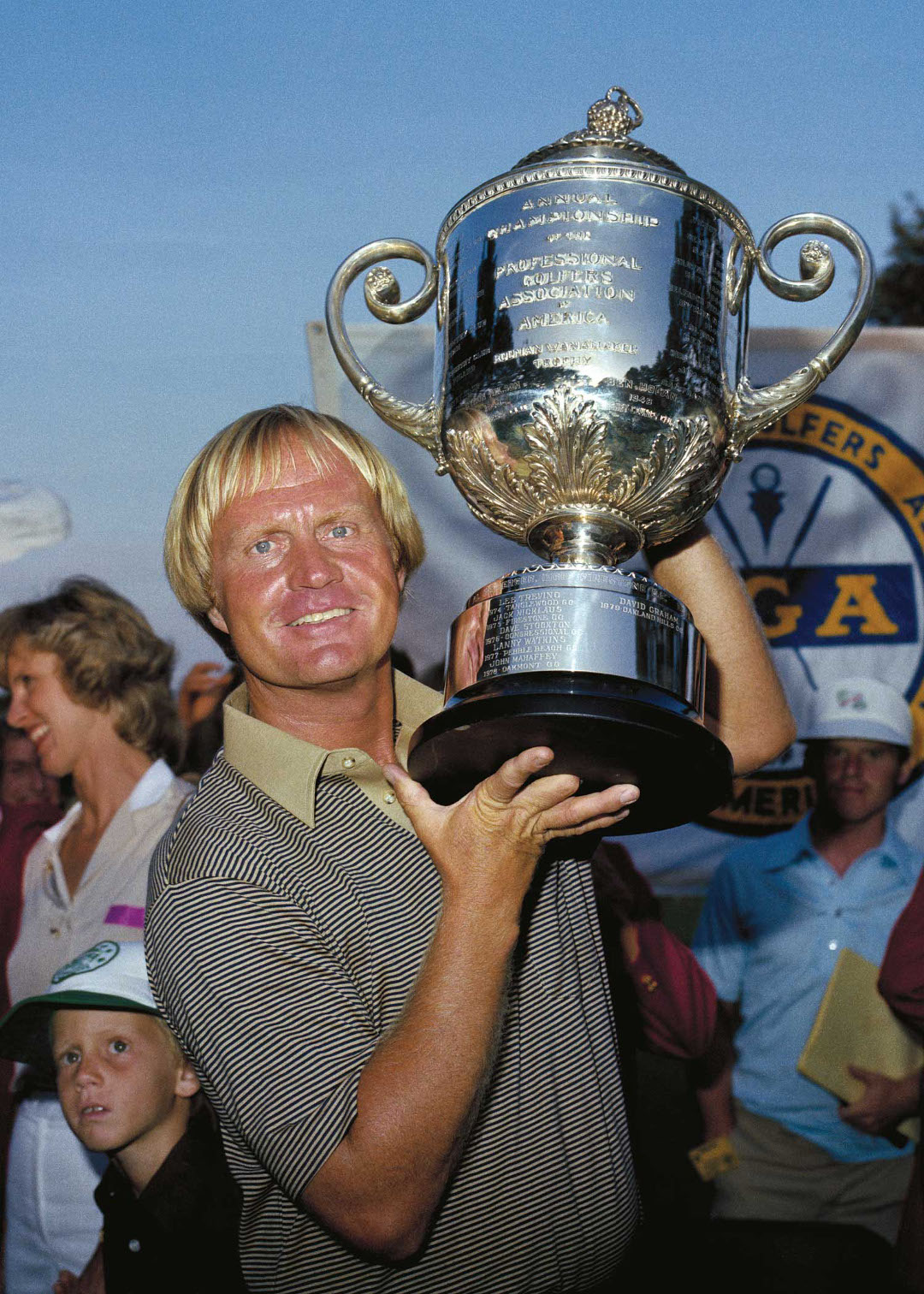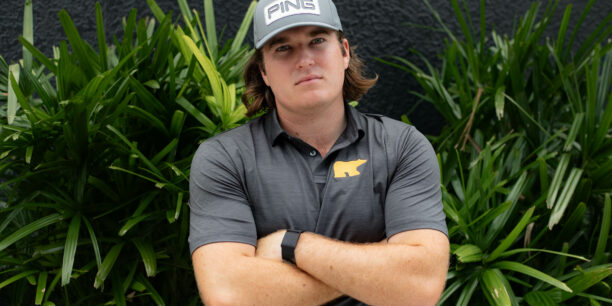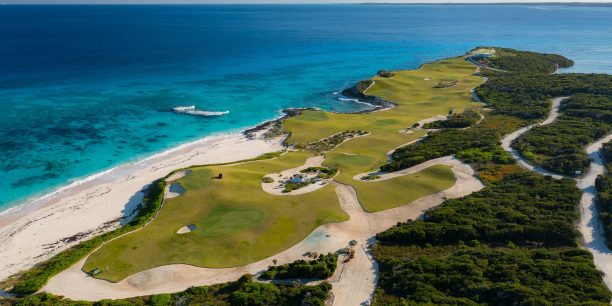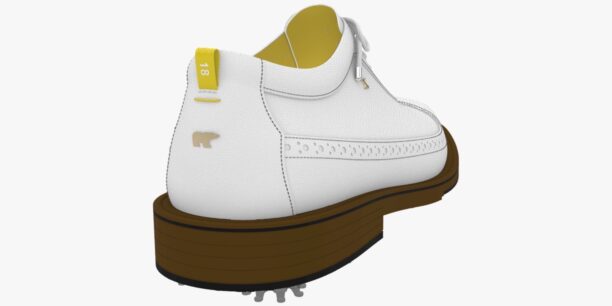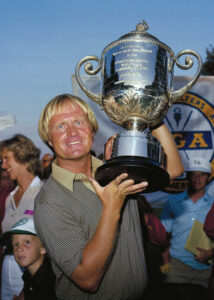 Major golf championships started before the Civil War: Willie Park won the first British Open, a 36-hole affair at Prestwick, in 1860. The U.S. Open debuted in 1895, and it was followed by the PGA Championship (1916) and the Masters (1934). To identify the greatest major championship players of all time, SI Golf Group devised a point system, and in the end, Jack Nicklaus—the record holder with 18 professional majors—emerged as the greatest major champion. The magazine started with the 1892 British because that was the first year the event was contested over 72 holes. While players from more than a century ago competed in only two majors a year, keep in mind that fields were considerably smaller, meaning it was easier to accumulate top 10s. So the playing field is somewhat leveled when comparing one era with another.
Major golf championships started before the Civil War: Willie Park won the first British Open, a 36-hole affair at Prestwick, in 1860. The U.S. Open debuted in 1895, and it was followed by the PGA Championship (1916) and the Masters (1934). To identify the greatest major championship players of all time, SI Golf Group devised a point system, and in the end, Jack Nicklaus—the record holder with 18 professional majors—emerged as the greatest major champion. The magazine started with the 1892 British because that was the first year the event was contested over 72 holes. While players from more than a century ago competed in only two majors a year, keep in mind that fields were considerably smaller, meaning it was easier to accumulate top 10s. So the playing field is somewhat leveled when comparing one era with another.
Point System
| First | 100 |
| Second | 70 |
| Third | 65 |
| Fourth | 60 |
| Fifth | 55 |
| Sixth | 50 |
| Seventh | 45 |
| Eighth | 40 |
| Ninth | 35 |
| 10th | 30 |
| 11th-17th | 25 |
| 18th-25th | 20 |
| 26th-30th | 15 |
| 31st-40th | 10 |
| 41st+* | 5 |
*finishing 72 holes
| Rank | Player | Points | Starts | Masters | U.S. Open | British Open | PGA |
|---|---|---|---|---|---|---|---|
| 1 | Jack Nicklaus | 5,810 | 164 | 6 wins, 4 seconds | 4 wins, 4 seconds | 3 wins, 7 seconds | 5 wins, 4 seconds |
| Surprised? Big Jack played in the most majors and had the most wins (18), most seconds (19) and most top 10s (73). | |||||||
| 2 | Sam Snead | 3,730 | 118 | 3 wins, 8 top-3s | 4 seconds | 1 win, 5 starts | 3 wins, 2 other finals |
| Had seven wins and 60 top 25s; his biggest disappointment was that he never won the U.S. Open. | |||||||
| 3 | Gary Player | 3,600 | 150 | 3 wins, 15 top-10s | 1 win, 2 seconds | 3 wins in three decades | 2 wins, 2 seconds |
| Nine wins and 18 top threes, and his 70 top 25s are second only to Nicklaus’s 95. | |||||||
| 4 | Tom Watson | 3,535 | 140 | 2 wins, 3 seconds | 1 win, 2 seconds | 5 wins, 2 seconds | 1 second |
| His eight wins are sixth-all time, but he never won the PGA, losing in a playoff in 1978. | |||||||
| 5 | Tiger Woods | 3,255 | 70 | 4 wins, 11 top-5s | 3 wins, 2 seconds | 3 wins, 2 thirds | 4 wins, 2 seconds |
| Has a remarkable 20 percent win rate, but his victory drought is at six years and counting. | |||||||
| 6 | Gene Sarazen | 3,215 | 116 | 1 win | 2 wins, 7 top-3s | 1 win | 3 wins in match play |
| First player to win the modern Grand Slam, and the first to win the U.S. Open and the PGA in the same year (1922). | |||||||
| 7 | Arnold Palmer | 3,195 | 142 | 4 wins, 9 top-4s | 1 win, 4 seconds | 2 wins, 1 second | Three seconds |
| His seven wins came in a six-year window, and he was a 10-time runner-up over his career. | |||||||
| 8 | Ray Floyd | 2,715 | 127 | 1 win, 1 second | 1 win | 1 second | 2 wins, 1 second |
| Turned his only top-five in the U.S. Open into a victory in 1986 and was two back of Jack at the 1978 British. | |||||||
| T9 | Ben Hogan | 2,705 | 58 | 2 wins, 4 seconds | 4 wins, 10 top-5s | 1 win in only start | 2 wins in match play |
| Fabulous record for a late bloomer who coped with the Depression, World War II, and a serious car accident. | |||||||
| T9 | Phil Mickelson | 2,705 | 86 | 3 wins, 5 thirds | 6 seconds | 1 win, 1 second | 1 win, 1 second |
| Didn’t win his first major until age 34, and he holds a dubious record in the U.S. Open. | |||||||
| 11 | Walter Hagen | 2,630 | 54 | No top-10s | Two wins, 1 second | Four wins, 1 second | Five wins in match play |
| Most wins of anyone before World War II, and his 20.7 percent win rate is the best of all time. | |||||||
| 12 | Ernie Els | 2,610 | 85 | Two seconds | Two wins, 1 second | Two wins, 9 top-fives | 2 thirds |
| Has won majors in three decades, and he was in contention on Sunday in six of Tiger’s 14 victories. | |||||||
| 13 | Greg Norman | 2,405 | 91 | 3 seconds, 9 top-sixes | Two seconds | Two wins, 1 second | Two seconds |
| What could have been—he was in the hunt, if not in the lead, in a dozen majors on the back nine on Sunday. | |||||||
| 14 | Nick Faldo | 2,390 | 98 | 3 wins | Lost playoff in 1988 | 3 wins, 1 second | 1 second, 1 third |
| Six-time winner, made most of his opportunities after being in contention just 12 times. | |||||||
| 15 | Ben Crenshaw | 2,366 | 116 | 2 wins, 2 seconds | 1 third | 2 seconds | Lost playoff in 1979 |
| In contention more than a dozen times, but had problems closing the door on the back nine. | |||||||
| 16 | Tom Kite | 2,200 | 109 | 3 seconds | 1 win | 1 second | 2 fourths |
| Accumulated a lot of points due to longevity as well as his 16 top-fives. | |||||||
| 17 | Lee Trevino | 2,180 | 89 | Tenth two times | 2 wins | 2 wins, 1 second | 2 wins, 1 second |
| Only flaw for this six-time champion was his indifferent play at Augusta National. | |||||||
| 18 | Fred Couples | 2,120 | 96 | 1 win, 11 top-10s | One third | Two thirds | One second |
| Contended in all four and was at his best in the Masters (five top-5s) and the British (nine top-10s). | |||||||
| 19 | Byron Nelson | 2,115 | 53 | 2 wins, 2 seconds | 1 win, 1 second | 1 fifth | 2 wins in match play |
| Excellent record despite playing during the Great Depression and World War II, retired in his prime at age 34. | |||||||
| 20 | Billy Casper | 2,090 | 94 | 1 win, 1 second | 2 wins | 1 fourth | 3 seconds |
| Won in three decades and only played the British five times, never before age 38. | |||||||
